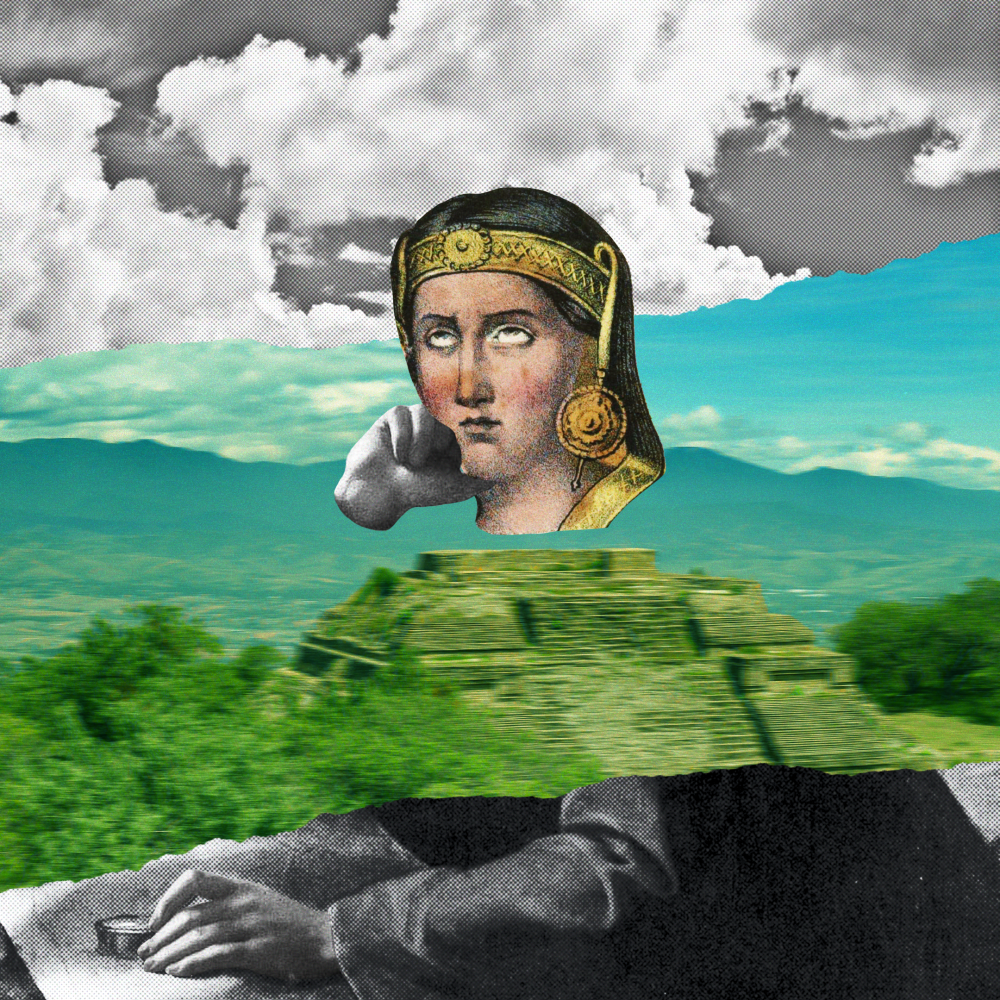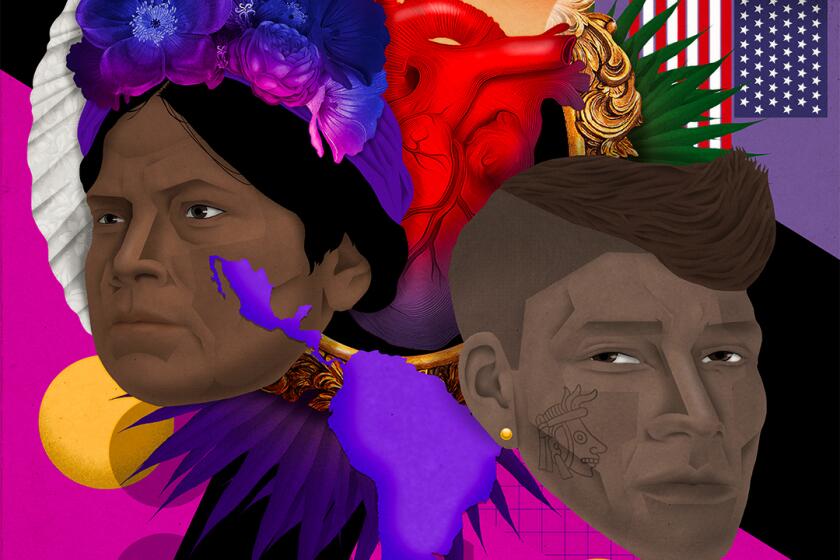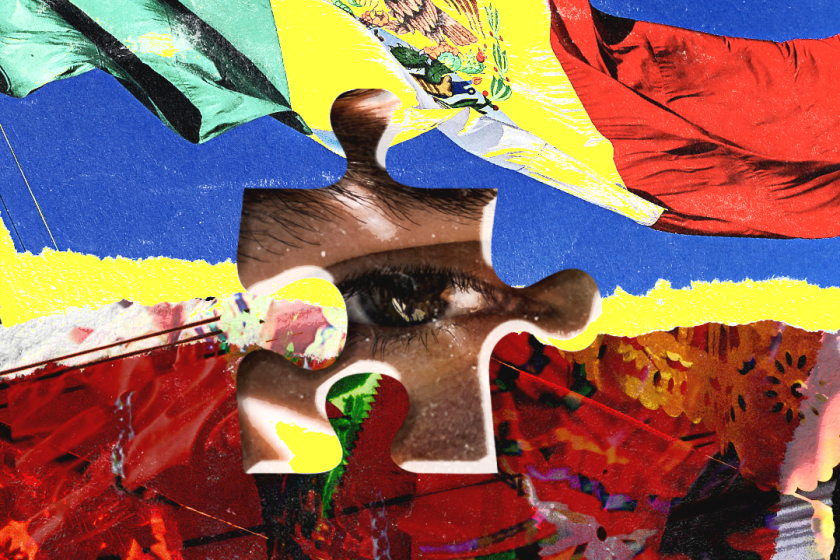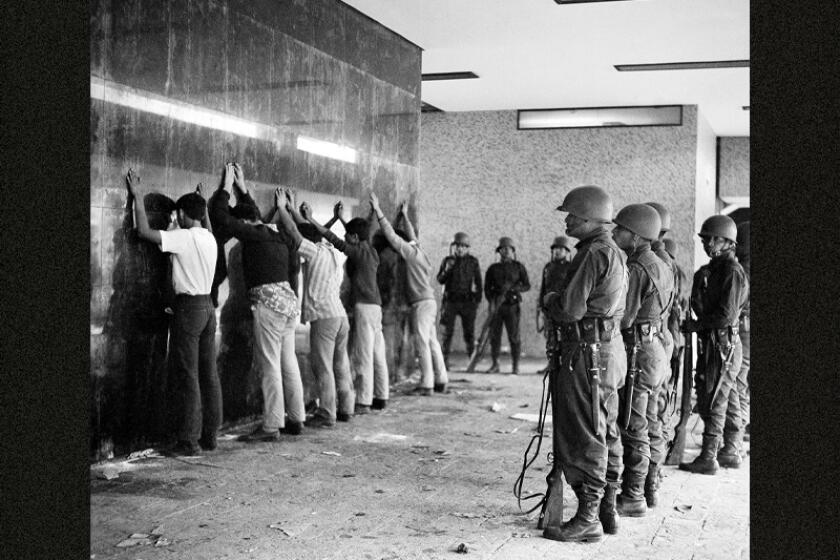
- Share via
It is quite an accomplishment that many people in the United States and South America still manage to remember a man who was lost at sea thinking he found a route to Asia and died not knowing he arrived at a different continent. If you think about it, Columbus Day isn’t really about celebrating Christopher Columbus; it’s about celebrating what he represents in terms of power and domination of a European empire — economics, politics, society — over a population across the ocean.
Why not forget about Columbus once and for all? In France, they do not celebrate the Mexican-French war. Why would the French celebrate the fall of the French Empire? It seems like the recognition of Columbus Day is a desperate need for Americans to feel European. It’s interesting how the lives of an entire population changed for centuries just because one Italian explorer thought himself to be in South Asia.
Latin American history is not as simple as Columbus Day makes it seem. It is much more complicated — you can’t equate the history of the Bahamas to that of Guatemala, Guyana or Uruguay. You cannot compare Buenos Aires with Lima or Caracas. America is much greater, braver and enlightened than one simple Oct. 12, because it had greater glories way before 1492 and built exquisite monuments and cities like the Egyptians and the Chinese did.
‘I was ashamed to be from Mexico but profoundly proud to be born in Oaxaca. Until that night in Miami.’
Columbus Day has become a political pawn positioned in American countries today to denigrate Indigenous people and to remind them that they are inferior to anything signifying European civilization. The discourse of inferiority began when Native people became “Indians” or “Indigenous.” The word “Indian” did not exist in the Americas until Columbus arrived. It is not only about the use of the word that is at stake here, but also what it signifies and the damage it has caused.
In Mexico, for instance, it can be used to denigrate Indigenous people and in turn, end up proving that Spanish imperialism remains in the everyday politics and culture of the people who inhabit the Americas. Of course, it is much more complicated than that. But this raises the question: Are Native nations and people in the contemporary American continent “Indian?”
Take it from a Mixtec nobleman who asked a Spanish conqueror the name of his king and the Spaniard said: “Don Felipe de Austria.” The Mixtec nobleman replied: “Then, that is the name I will take for myself.” Mixtec noblemen and noblewomen in colonial Oaxaca refused to be inferior to the Spanish and claimed their dynasties through marriage allegiances well into the independence of Mexico. They refused to be the “Indians” Columbus claimed to have discovered. They spoke Mixtec and Spanish fluently alongside Latin, dressed in Spanish fashions, constructed palaces and kept Mixtec hieroglyphs as proof of their nobility. But people do not teach that in school today.
Celebrating Columbus Day takes us a few decades back and not forward into the future. I dare to say that most of modern Latin America in the 21st century is over Columbus. I once jokingly asked an Ecuadorean man why Latin America has corrupt governments and he replied: “Corruption came from Spain. The Europeans brought it.”
According to a recent analysis from Pew Research, 78% of U.S. Hispanics say it is not necessary to speak Spanish in order to be considered Hispanic. Within the group of Latinos who don’t speak Spanish, however, 54% say they have been shamed because of it.
So, at what cost do we celebrate a man whose lost voyage caused centuries of exploitation of mineral resources, conquest and slavery — let’s not forget that European expansion in America also influenced the transatlantic slave trade. Why not forget about this man once and for all?
What is really being celebrated? Is it nationalism, civilization, conquest or science?
If we think about it in terms of science and exploration, the Mayans were exploring the universe with their own observatories long before Columbus arrived. Columbus was looking for India, yet the Mayans were looking for the planet Venus. They modeled their architecture and reinforced their government emulating the cosmos. So why not celebrate the Mayan astronomers who found Venus? Why not celebrate the Mayan kings who used astronomy and engineering to shape politics in their kingdoms?
Finding Venus sounds much more attractive and sophisticated than someone being lost at sea.
Columbus Day has become the residue of white supremacy. It is the justification of genocide. It is the justification of imperialism. It is the justification of slavery and the justification of Indigenous people’s so-called inferiority to Europeans.
Fifty-five years ago, Mexico’s authoritarian government killed students during a peaceful demonstration. It would later become known as the Tlatelolco massacre.
Honestly, such justification is quite outdated and relentlessly tiring to even bring up over the dinner table. It does not spark an interesting, cultured conversation anymore. Perhaps try something else — I suggest the current state of Latin American economies or the current president of El Salvador.
Now, those topics are really about the future.
Noé López has a doctorate from the University of Texas at Austin and works in finance and digital banking. His writing and research focus on the socioeconomic development of his homeland, Oaxaca, Mexico. @noelpzoax
More to Read
The Latinx experience chronicled
Get the Latinx Files newsletter for stories that capture the multitudes within our communities.
You may occasionally receive promotional content from the Los Angeles Times.









